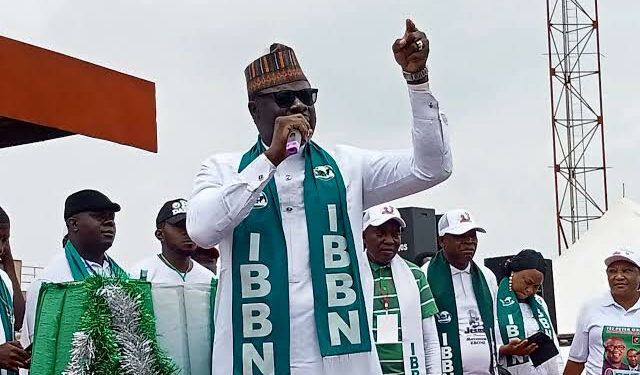The Initiative for Better and Brighter Nigeria (IBBN) leader, Prophet (Dr) Isa El-Buba, has warned that unless urgent actions are taken by President Tinubu regarding the escalating crisis of hunger and poverty ravaging the Nigerian populace, it may be difficult to curtail the consequences that will follow.
He was speaking on Thursday during a programme monitored by Tribune Online as he emphasized the critical need for immediate action to avert what he described as an “implosion” fuelled by the anguish of the suffering masses.
According to him, It was undeniable that Nigeria was long overdue for a revolution, adding that the relentless onslaught of hunger and poverty, if left unaddressed, would inevitably ignite a full-blown revolt by the marginalized and downtrodden.
Citing the poignant example of a desperate mother in Port Harcourt driven to deadly violence in her quest to feed her starving children, Prophet El-Buba painted a grim picture of the desperation gripping the nation.
“This is the grim reality we face in Nigeria today, where basic survival instincts override the principles of morality”, he said.
Despite the government’s proclamation of ‘state of emergency on food security’, Prophet El-Buba highlighted the ineffectiveness of current measures in stemming the tide of rising food prices and rampant insecurity plaguing agricultural communities.
Terrorist activities and incessant attacks on farmers, he noted, had decimated food production, while inflation and economic instability had pushed essential commodities beyond the reach of the common man.
In response to this dire situation, Prophet El-Buba outlined a comprehensive roadmap for immediate action, which included the release of Strategic Food Reserves.
He urged the government to release grains from strategic reserves and ensure their distribution at affordable prices to mitigate the burden on impoverished Nigerians.
On collaborative efforts, he emphasized the need for collaboration between government, the private sector, and civil society organizations to implement sustainable hunger alleviation measures, drawing inspiration from successful models such as China’s support for smallholder farmers.
Further on local initiatives, the renowned clergyman called on state governments to spearhead localized initiatives tailored to their specific needs, akin to Brazil’s Zero Hunger programme, to empower communities and address food insecurity at the grassroots level.
On infrastructural development, El-Buba advocated investment in rural infrastructure, including road networks and storage facilities, to enhance agricultural productivity and reduce post-harvest losses.
Speaking on youth empowerment, Isa El-Buba proposed long-term investments in training and mentoring programmes to equip youths and rural farmers with modern farming techniques, thereby boosting food production and alleviating poverty.
On security, he urged decisive action by the government to tackle insecurity head-on, with a focus on restoring peace in food-producing regions and holding perpetrators of violence accountable.
The clergyman also called for the resettlement and restoration of farming villages displaced by conflict, with a dedicated grant to facilitate their return to agricultural livelihoods.
He then drew the attention of President Bola Ahmed Tinubu to the soaring prices of cement and its ripple effects on food affordability, urging swift intervention to alleviate the burden on the populace.
Isa El-Buba concluded by issuing a rallying cry to all Nigerians, urging collective action and a return to farming as a means of achieving food sufficiency and national self-sustainability.
“May God save Nigeria from an impending implosion,” he prayed, just as he echoed the fervent hopes of millions facing the specter of hunger and despair.





